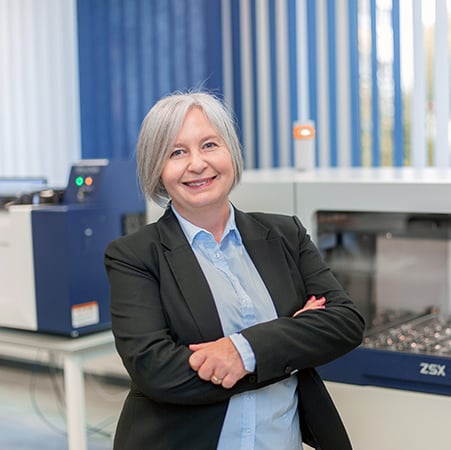Application Note BATT1032
Introduction
In the development of all solid-state batteries, accurate composition evaluation of solid electrolytes is an important process that directly affects battery performance and safety. Sulfide-based solid electrolytes, in particular, have high ion conductivity, but they react with moisture in the air to produce toxic gases, so strict handling of the samples is required. Conventional ICP analysis involves complicated pretreatment such as acid decomposition of the sample and risks of exposure to the atmosphere, which poses problems in terms of worker safety and reproducibility of analysis. Against this background, there is a need for a “simpler, safer, non-atmospheric exposure” and “highly accurate compositional evaluation” method. In this method, powder samples are sealed in a double-sealed cell to ensure airtightness, enabling rapid XRF measurement of sulfide-based solid electrolytes in a non-destructive and non-air-exposed manner. This allows simplification of pretreatment and improvement of work efficiency while ensuring safety at the same time.
Elemental analysis
- Analysis: Sulfide solid electrolytes
- Use: Improving ionic conductivity performance
- Analyzed materials: LPSC
- Analysis method: Standardless FP method

Figure 1: Schematic of double container
Table 1: Measurement results
| Component | Li | P | S | Cl |
| Chemical composition | 16 | 12 | 60 | 13 |
| Analysis value | 13.0 | 58.8 | 12.7 |
Conclusion
In this study, LPSCl powder was sealed in a double container in a glove box and measured by XRF without exposure to air. The results for the main components were in good agreement with expected values, demonstrating the effectiveness of this non-destructive, rapid, and simple compositional analysis method. This approach will greatly streamline the quality control of solid electrolytes and the evaluation process in research and development, while ensuring safety.

